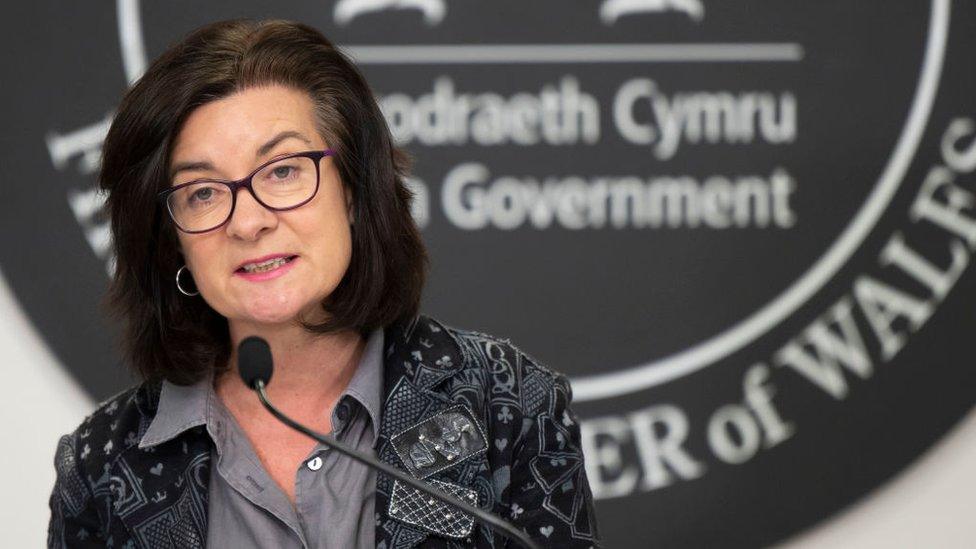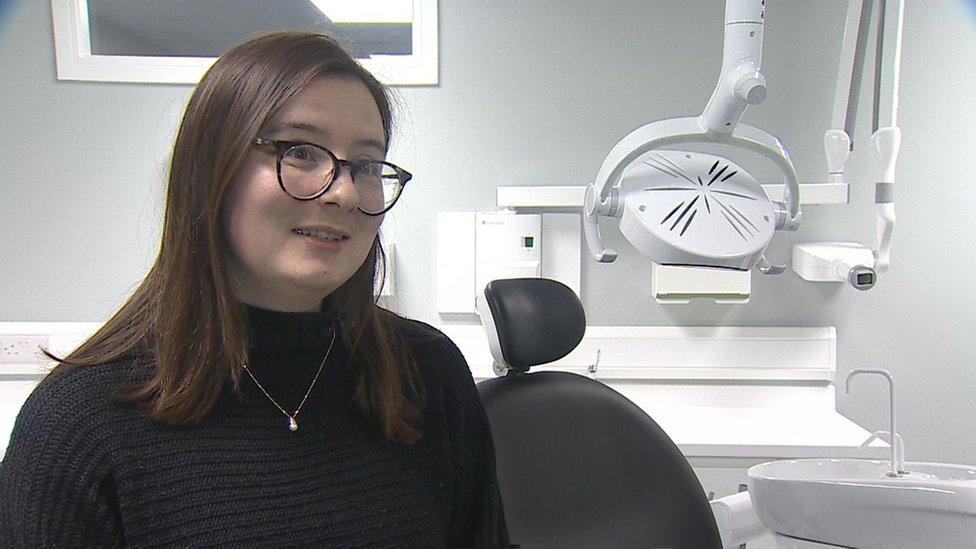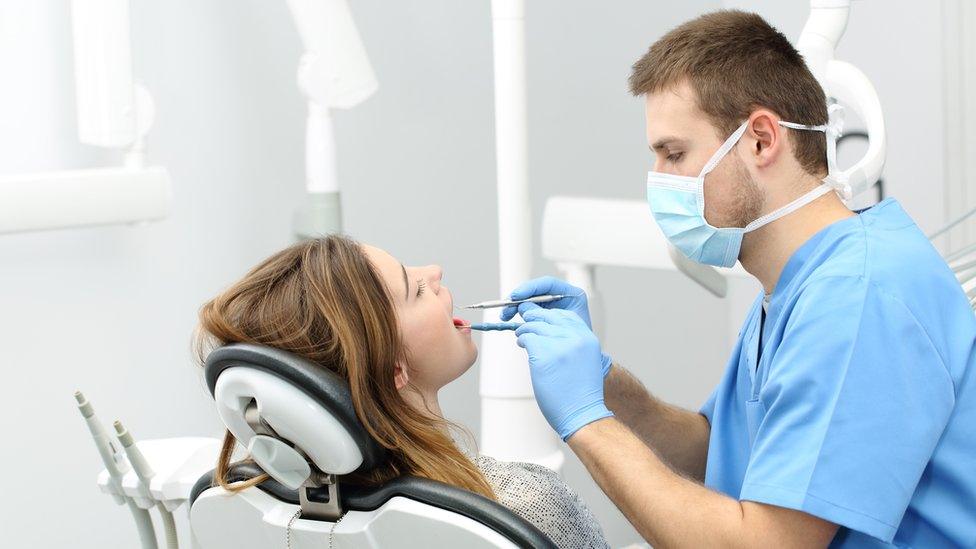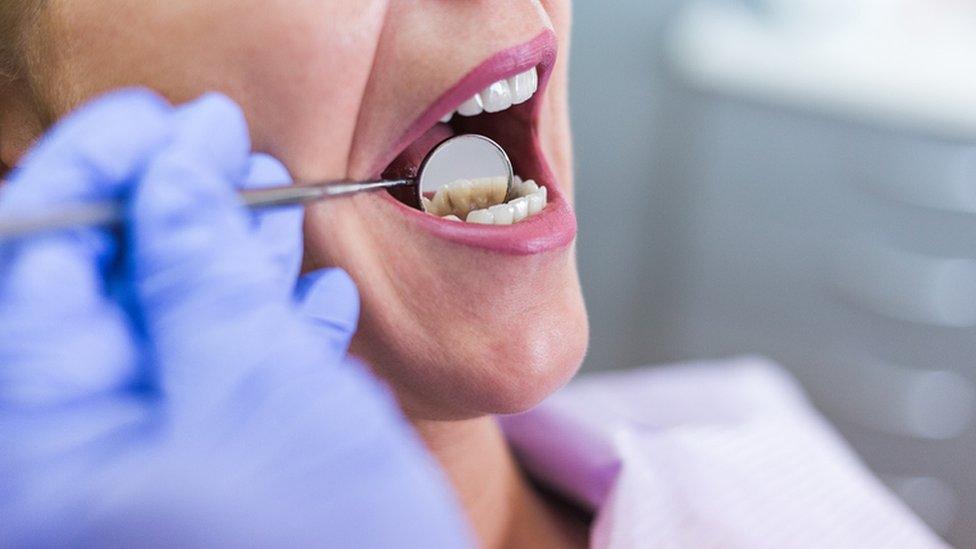NHS Wales: Open letter warns new contracts will force dentists out
- Published

Dr Russell Gidney of the BDA has sent an open letter to the Welsh government
The British Dental Association has sent an open letter to the Welsh government warning new contracts will force practices from the NHS.
It was penned following Eluned Morgan's claims an extra £2m a year would help secure 112,000 appointments for new patients this year.
The letter, addressed to chief dental officer Andrew Dickenson, said dentists would leave because of the measures.
The Welsh government reiterated claims its system was working.
New NHS contracts issued by the Welsh government include a requirement to see new patients but the BDA claims this to the detriment of those already registered at practices.
In the letter chairman of the BDA's Welsh General Dental Practice Committee, Russell Gidney, said: "The government's failure to examine the real-world impact of these new, untested targets will force many practices to withdraw partially or wholly from NHS dentistry, given the unreasonable business risks they alone are having to bear as result of the experimental contract reform conditions."
He warned "the fate of NHS dentistry is in the balance" and said recruitment and retention problems had been flagged repeatedly.
"They are voting with their feet and leaving NHS work for private work," the letter said.
"Indeed, newly qualified dentists are increasingly avoiding NHS work from the outset."

It was penned following Eluned Morgan's claims an extra £2m a year would help secure 112,000 appointments
It said the changes would do nothing "to stem the haemorrhage".
"We have warned repeatedly over the last year that we face potential catastrophic collapse of NHS dentistry in Wales directly because of the way contract reform has emerged from the pandemic, and the lack of responsiveness by government," Dr Gidney wrote.
He claimed "scant regard" had been given to BDA advice on contract reform.
"Many of our members have told us they feel the government does not care for the wellbeing of NHS dentistry, of those who provide it, and those who receive it," he said.
The government, Dr Gidney wrote, had not shared data that led to the changes with dentists so it could be scrutinised.
"We certainly want to avoid going down the path of multiple FOIs as these are time consuming for all parties and not good use of precious resources," said the letter.
Concerns were also raised that the contracts did not address their concerns about health inequalities.
The reforms also failed to consider that some practices had higher proportions of red patients - those needing urgent or complex treatment - and therefore needed more clinical time to help them.
The Welsh government said of 112,000 new dental appointments being made available 109,000 had been taken up.
It reiterated Eluned Morgan's comments, saying: "The system has changed. It's working. Of course, there may be frustrations from some dentists who may not like the new system, but its very, very much a minority."
In an interview with the BBC Dr Gidney said: "That is just not based in reality. Almost without exception, people are are just absolutely stretched beyond breaking point within the NHS system."
Related topics
- Published26 November 2022

- Published19 October 2022

- Published2 November 2022
